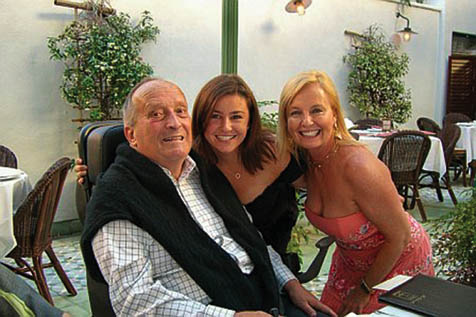Joseph Edward Nida 1940-2007

Ihad the same first impression that many others had when meeting the estimable Joe Nida, a 6ʹ4Ê° behemoth of a man, with a deep baritone voice and an intimidating scowl. My first true interactions with him were under unusual circumstances. My father, who was the same age as Joe, had just passed away unexpectedly. In circumstances like that, the reaction of most people is to stay away from and not “bother” the suffering person. Joe thought differently.
He called me and asked if we could get together. Being in the state I was in and wondering what in the world Joseph Nida would want with me, I didn’t return his call. He called again, and I again didn’t return his call. Finally, his assistant Cheryl called; that’s when I knew I’d better respond.
While everyone else stayed away and gave me “space,” Joe was actually brave enough to talk about my father’s passing with someone he was just getting to know. This is a topic that could have been easily avoided. We could have just discussed business and the weather, but Joe wasn’t like that.
It also struck me how technically in-depth Joe got in explaining his lower motor neuron disease, and then how lavishly he praised the inventor of the wheelchair that allowed him such mobility. What struck me even more was the fact that Joe never once complained, or lamented his condition.
We hit it off, and from thereafter had a standing lunch appointment. The first 20 minutes or so were usually spent catching up on business and family, and the remainder was often spent seeing who could entertain the other with tall tales. Those sessions were such good times.
One of his stories went like this: A priest sees two bricklayers. The priest walks up to the first bricklayer, taps him on the shoulder, and asks him, “What are you doing?” The man looks up and says, “I’m laying bricks.” The priest taps the shoulder of the second one, and asks the same question: “What are you doing?” The second bricklayer looks up and says, “I’m building a cathedral.” That was how Joe viewed life. He didn’t care about others’ wealth or titles or any of that stuff. He cared if you loved what you did, and that’s what made him such a good friend and mentor to us all. To Joe, relationships and people were cathedrals.
It was all about people for Joe. If you got on the topic of his condition, he would tell you all about the inventor of his iBot, a revolutionary powered wheelchair. If you found yourself on the topic of his favorite restaurants, Joe could tell you all about the chefs who worked there, and even about their kids. If you asked him what he was most proud of in his life, he would say, “Jill” (his wife).
Joe was always available for his friends and would extend his hand to help you. If you didn’t respond, he would extend further and further until you finally did.
In Eastern philosophy, there is the notion of a bodhisattva, which is an angelic and special level achieved only when a being has suffered the huge and requisite pain necessary for enlightenment, and is thus able to transcend this world and go to the next. However, occasionally such an enlightened being chooses to stay back here on this earth to help the rest of us as we journey through pain and quest for such enlightenment. I didn’t realize that such an angel could come in the form of a 6ʹ4Ê° behemoth of a gruff man with such a deep and baritone voice and intimidating scowl. Thank you, Joe, for I am a better man for having known you.
Donations in Joe’s name may be made to Hospice of Santa Barbara, 2050 Alameda Padre Serra, Suite 100, Santa Barbara, CA 93103. If you would like to send something to the Nida home, the family requests tropical plants to build a garden in Joe’s memory.



